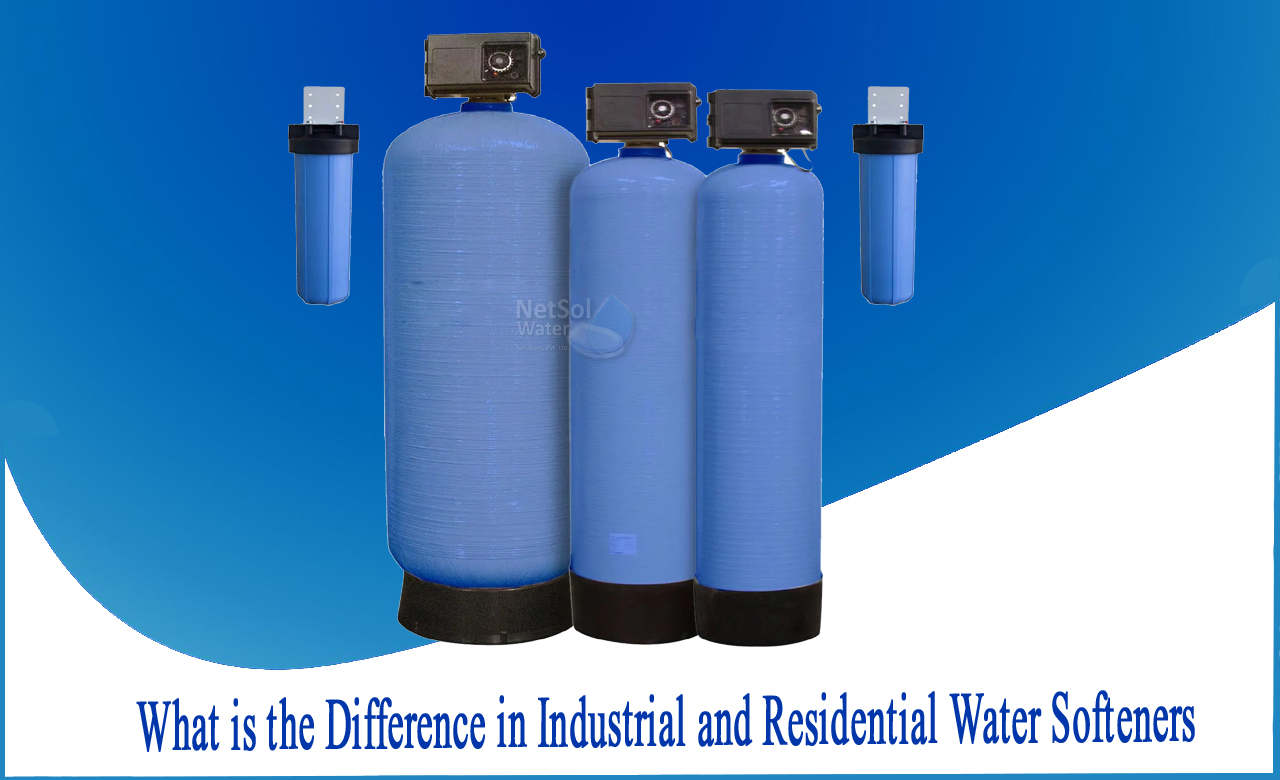What is Water Softening?
Water softening is the process of eliminating the ions in water that cause hardness, most often calcium and magnesium ions. A water softener softens hard water by removing the minerals that cause it to become that way.
Need of water softeners for residential purposes
While hard water is generally safe to drink, the minerals present in it leads to many issues for homes. Clogged pipes and a shorter lifespan for household appliances are examples of problems caused by hard water. Hard water that has not been treated can have a severe impact on how you use water in your daily life, from drinking to cooking and cleaning. Hard water minerals are effectively removed by water softeners. This is accomplished by removing calcium and magnesium from the water supply using an ion exchange mechanism.
Need of water softeners for industries
Soft water is used by businesses and industries to prevent scale build-up in water heaters and boilers, to reduce mineral hardness staining, and to provide high-quality water for manufacturing processes and products. The process of industrial water purification and softening transforms unfit for industrial use water into water that is free of sediment and pollutants, as well as having the proper pH balance.
Classification of water softeners
Despite the fact that there are numerous brands and models of water softening units in the market, they all essentially work the same with small variances in extra features, flow rates, and so on.
Almost all softeners can be classified into one of two groups:
Timed models: Timed models have programmable timeclocks that will regenerate and return to service on a predetermined timetable. These are useful for residential houses who use water on a regular basis, but they waste more water and salt because they regenerate whether or not the resin requires it.
Demand control models: After a certain number of gallons of water has been softened, demand-control versions with either electrical or mechanical sensors commonly regenerate. If you have a changing water usage schedule, like in industries, such models are useful.
What is the Difference in Industrial and Residential water softeners?
Industrial water softeners have several advantages over home water softeners. Among the benefits are the following:
1. Reduces the quantity of chemicals required for water purification
Hardness is removed from water using water softeners. This is accomplished by the action of other chemicals in the water softener, which neutralize the compounds in hard water. Because they can treat a bigger volume of water at once, industrial softeners don't require as many chemicals as normal water softeners.
2. Fewer maintenance costs
Proper maintenance procedures are critical for increasing the shelf life of any item, but they are especially crucial when such an equipment or device is costly. There may be costs associated with maintenance, such as replacing chemicals, and because industrial water softeners use less energy than normal water softeners, the cost of upkeep is reduced.
3. Reduced energy consumption costs
Water softeners typically operate by consuming electricity, and as a result, if they run for an extended period of time, they might increase your power bill. Regular water softeners can only treat small amounts of water at a time, so if you need to treat big amounts of water (as is common in industrial settings), you'll need to run your water softener continually. This not only raises your electric bill, but it also puts a pressure on the machine, which can cause your water softener to break down.
Conclusion
Professionals in the water quality business can provide more extensive assistance and specialized recommendations when it comes to selecting the proper water treatment for residential or industrial water softening. Netsol Water products and solutions can provide the water your plant requires at every stage!
Choose the best solution for your problem!
Call us if you're ready to get rid of the stains and make your water supply cleaner and healthier! Our services include the greatest water and wastewater treatment, as well as a variety of useful after-sales services. Our professionals will check the customer's location first, then explain the available options and thus allow you to select what is best for your property. You can always find useful information by liking and following us on YouTube and LinkedIn.



